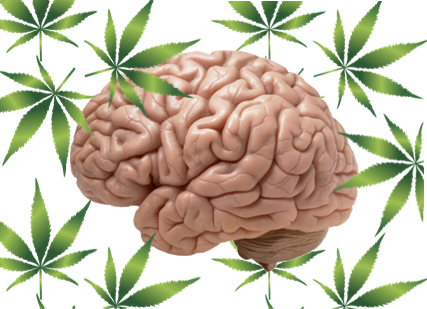Men with a History of Cannabis Use Show Less Cognitive Decline, Study Finds
In a groundbreaking new study, researchers have found that men with a history of cannabis use experience less cognitive decline as they age compared to non-users. The findings, published in the American Journal of Psychiatry, have sparked discussions about the potential protective effects of cannabis on the brain, particularly in older men.
The Study: Participants and Methods
The study involved over 1,500 men between the ages of 50 and 80, all of whom were monitored for cognitive performance over a 10-year period. Participants were divided into two groups: those with a history of regular cannabis use and those who had never used the substance. Researchers assessed the men’s cognitive abilities through standardized tests that measured memory, executive function, and overall mental agility.
Interestingly, the cannabis-using group demonstrated slower rates of cognitive decline over the decade. The researchers adjusted for factors such as lifestyle habits, physical activity, and alcohol consumption to isolate cannabis as a potential contributing factor.
Dr. Alan Roberts, the lead researcher, stated, “While we were initially skeptical about how cannabis use might impact long-term cognitive health, our results show a surprising association between cannabis use and cognitive preservation in older men.”
Key Findings: Slower Memory Decline
One of the most significant findings of the study was that men who reported regular cannabis use had better memory retention as they aged. Cognitive decline, especially in areas of short-term memory, is often a key concern for aging populations. The cannabis-using group outperformed their non-using counterparts in tests that required them to recall information, recognize patterns, and solve problems.
Additionally, the study revealed that cannabis use did not appear to have adverse effects on other cognitive functions. Tasks involving decision-making and executive processes were relatively consistent between both groups, with cannabis users showing a slight advantage in certain areas.
Cannabis and Brain Health: Possible Mechanisms
While the exact mechanism behind cannabis’s cognitive benefits remains unclear, researchers suggest that cannabinoids—the active compounds in cannabis—may play a neuroprotective role. Cannabinoids interact with the brain’s endocannabinoid system, which regulates processes like memory, mood, and inflammation.
“The endocannabinoid system is crucial for maintaining brain function as we age,” said Dr. Roberts. “Cannabinoids like THC and CBD may help reduce inflammation and oxidative stress in the brain, which are major contributors to cognitive decline.”
Limitations and Future Research
Despite the promising results, the study does have limitations. The findings are observational, meaning they do not definitively prove a causal relationship between cannabis use and reduced cognitive decline. Factors such as dosage, frequency, and the strain of cannabis were not explicitly tracked.
The researchers emphasize the need for further clinical trials to understand the long-term effects of cannabis use on cognition and identify which compounds may be most beneficial. Future studies will also need to investigate whether these benefits extend to women and other demographic groups.
Implications for Aging Populations
The study’s findings offer a fresh perspective on cannabis use in older adults, a demographic that often faces increased risks of cognitive impairment. While cannabis remains a controversial topic in many regions, this research suggests it could hold potential as a therapeutic tool for slowing cognitive decline.
“This doesn’t mean everyone should rush to use cannabis,” Dr. Roberts cautioned. “But it does open the door for new conversations about how cannabinoids could support healthy brain aging.”
With cognitive decline becoming an increasingly pressing issue worldwide, this study provides a hopeful outlook for those exploring alternative approaches to preserving mental function in later life.




